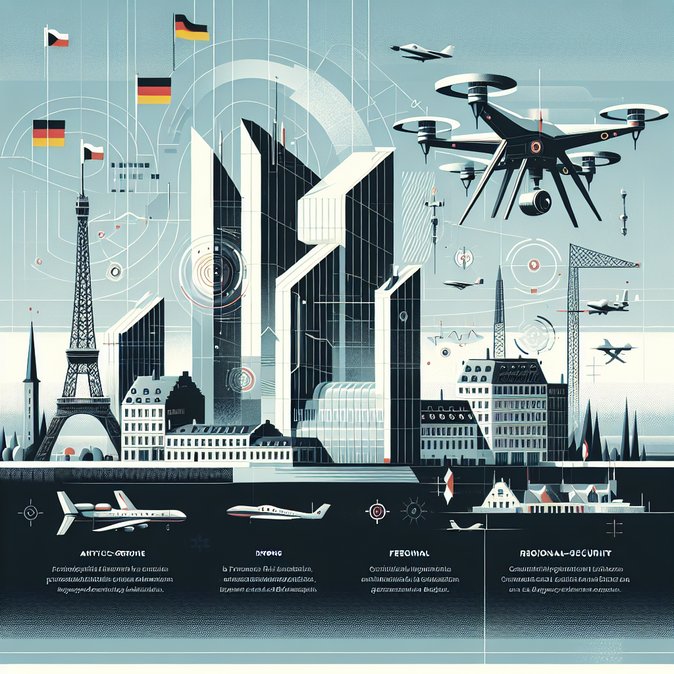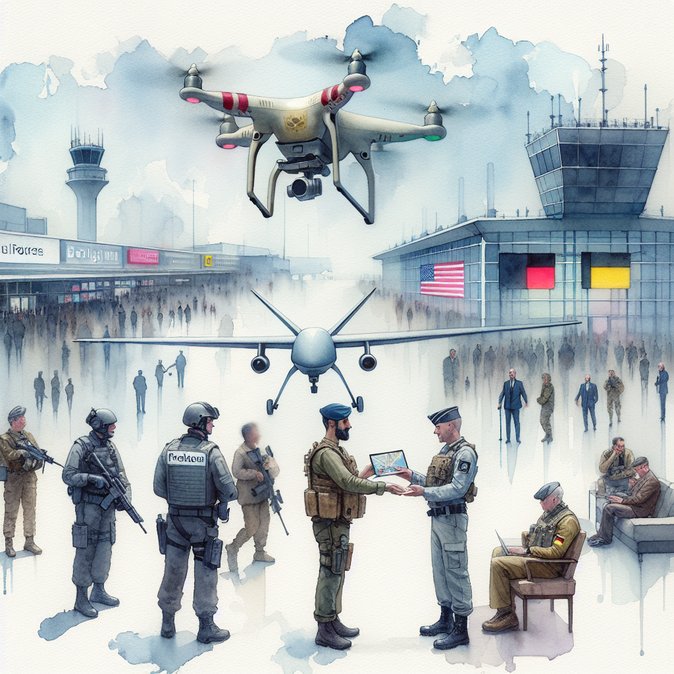
Belgium’s fight against illicit drone incursions received a boost this weekend after Defence Minister Theo Francken confirmed that a specialist French anti-drone detachment had arrived on 8 November. The team joins German air-force experts who deployed two days earlier to help detect, track and neutralise unmanned aircraft that have repeatedly forced short-notice closures of Brussels, Liège and other Belgian airports over the past week.
The move follows a string of coordinated drone sightings on 4-6 November that grounded dozens of passenger and cargo flights and diverted high-value medical shipments. Belgian authorities believe the incidents are part of a wider pattern of “hybrid” attacks aimed at sowing economic disruption across Europe. While officials have stopped short of publicly blaming any state, security sources point to tactics similar to those used in other EU countries where sabotage attempts have been linked to Russian actors.
![France Deploys Anti-Drone Unit to Belgium as Airspace Disruptions Persist]()
Under the emergency arrangement, French and German teams will integrate with Belgium’s air-defence command to provide mobile radio-frequency jamming and radar capability around key airports and military bases. The government is also negotiating additional support from the United Kingdom and the Netherlands, reflecting growing regional concern that commercial aviation could remain a soft target.
For business travellers and mobility managers, the cooperation is a welcome sign that Belgium is moving from a reactive stance—temporary airport shutdowns—to a preventive layered-defence model. Airlines have urged quick implementation after Brussels Airlines said drone alerts were costing more than €1 million per hour in cascading delays. Logistics firms such as DHL, still clearing a backlog from earlier closures, warn that further disruptions could jeopardise time-critical pharmaceutical exports in the run-up to the holiday season.
Practical implications: travellers should monitor airport apps for real-time updates, build additional connection buffers, and ensure travel-risk policies cover drone-related cancellations. Corporations with frequent intra-EU shuttles may also wish to review alternative routings via Amsterdam or Paris until Belgium’s counter-drone shield is fully operational.
The move follows a string of coordinated drone sightings on 4-6 November that grounded dozens of passenger and cargo flights and diverted high-value medical shipments. Belgian authorities believe the incidents are part of a wider pattern of “hybrid” attacks aimed at sowing economic disruption across Europe. While officials have stopped short of publicly blaming any state, security sources point to tactics similar to those used in other EU countries where sabotage attempts have been linked to Russian actors.

Under the emergency arrangement, French and German teams will integrate with Belgium’s air-defence command to provide mobile radio-frequency jamming and radar capability around key airports and military bases. The government is also negotiating additional support from the United Kingdom and the Netherlands, reflecting growing regional concern that commercial aviation could remain a soft target.
For business travellers and mobility managers, the cooperation is a welcome sign that Belgium is moving from a reactive stance—temporary airport shutdowns—to a preventive layered-defence model. Airlines have urged quick implementation after Brussels Airlines said drone alerts were costing more than €1 million per hour in cascading delays. Logistics firms such as DHL, still clearing a backlog from earlier closures, warn that further disruptions could jeopardise time-critical pharmaceutical exports in the run-up to the holiday season.
Practical implications: travellers should monitor airport apps for real-time updates, build additional connection buffers, and ensure travel-risk policies cover drone-related cancellations. Corporations with frequent intra-EU shuttles may also wish to review alternative routings via Amsterdam or Paris until Belgium’s counter-drone shield is fully operational.








